
Photonics Market
As per the report, the Global Photonics Market — Forecasts from 2020 to 2025 published in April of 2020 in Research and Markets, the global photonics market is projected to grow at a CAGR of 5.85% to reach US$829.775 billion by mid-decade, from US$589.950 billion in 2019.
This is also good news for the quantum tech industry, which is set to grow, too. With more quantum computing startups being founded all the time, and with a fair proportion of them based on photonics, TQD thought it a good idea to list the top photonics companies as of 2024. A good indicator of the healthy state of the photonics industry, and how it can thrive further, is that five of the nineteen photonics companies listed here were founded in 2019.
For the avoidance of doubt, we have mixed up the hardware companies providing the underlying photonics equipment, as well as the startups leveraging the photonics equipment to advance quantum technologies.
19 Top Photonics Companies
1.AegiQ (UK)

AegiQ, is one of the top photonics companies formed as a spinoff from the University of Sheffield. It was founded in 2019 by Maksym Sich, Scott Dufferwiel, Maurice Skolnick, and Jon Heffernan. Their main goal is to manufacture high-calibre quantum photonic applications.

“Thousands of AegiQ systems will be required in each data centre around the world, as they transition to using quantum technologies for communication and cloud computing. Deploying our scalable technology with mass production capabilities into initiatives like this project will position the UK as a world-leader in manufacturing quantum communications.”
— Max Sich, CEO and co-founder of AegiQ
To achieve this, AegiQ secured £1.4 million in funding from Innovate UK in September 2020. The money will go towards developing secure quantum communications for fibre-optic and satellite-based applications.
Visit company’s profile page.
2.Cambridge Quantum Computing (UK)
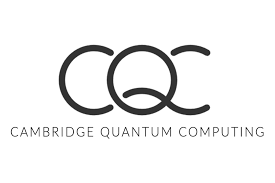
Cambridge Quantum Computing (CQC) needs no introduction: a world leader in quantum algorithms and software, the CQC’s technology is assisting chemical, energy, financial, and material science companies to see the quantum future.
Founded in 2014 by CEO Ilyas Khan, a British technologist, seasoned businessman and philanthropist (and former chairman of the Stephen Hawking Foundation), the company’s IronBridge™ quantum photonic cryptography device ‘is the only encryption process that ensures device independence and source certifiability to be used for post-quantum encryption algorithms, cached entropy generation for IoT devices, key generation for certificates, quantum watermarking and many other use cases and can be generated by general-purpose NISQ era quantum computers that are currently available’.
“We knew from the very beginning that if we could help the manufacturers and builders of early-stage quantum computers be the best that they could be by getting the best out of their devices and quantum processors, then we would be making a genuine and lasting impact.”
— Ilyas Khan, exclusive interview TQD 2020
Things are not only looking on the up for CQC with innovation but on the human resources side too: Bob Coecke, a professor at the University of Oxford in quantum foundations, logic and structures, joins as chief scientist, having worked as a senior scientific advisor before at CQC.
Scientists at the National Physical Laboratory (NPL) are working with Cambridge Quantum Computing (CQC) to accelerate research and development to support the commercialisation and optimisation of their quantum technologies, such as IronBridge™, and help with the characterisation of photonic components.
A $45 million financing round in December, bringing a $450 million post-money valuation to the company, only adds credence that CQC is one of the leading photonics companies in the industry.
Visit company’s profile page.
3. Hamamatsu Photonics (Japan)

Hamamatsu Photonics was founded in 1953 by Heihachiro Horiuchi. A manufacturer of a vast array of devices, from silicon photodiodes, electron multipliers (Ems) for detecting electrons, ions, and charged particles, to multi-pixel photon counters, Hamamatsu’s photonics technology also serves the quantum information science (QIS) industry with products in laser cooling/Bose-Einstein condensation (BEC), quantum imaging, neutral atoms/trapped ions, and Nitrogen vacancy (NV) cameras.
President and CEO Akira Hiruma heads this photonics company that has north of 5000 employees.
Visit company’s profile page.
4.iPronics (Spain)

A spinoff from Universitat Politècnica de València established in 2019, iPronics founders Ivana Gasulla, Jose Capmany, Daniel Pérez López, and Prometheus DasMahapatra’s focus is to revolutionize the future of integrated photonics.
The Story Behind the programming of Light: It all started with an idea, a proof of concept and the dream of changing light science and technology
— iPronics
The novel idea of this company to develop general-purpose integrated programmable photonic systems, where optical hardware complements software to perform multiple functions, is the basis of iPronics’ unique offering.
Although signs of funding are sparse to date, José Capmany’s award for the “Leonardo Torres Quevedo” National Research Award of this year (2020) in engineering is a sign iPronics’ leadership team can guide them in the right direction.
Visit company’s profile page.
5.LIGENTEC (Switzerland)

A manufacturer of photonic integrated circuits (PIC) that serve the AI, quantum technologies, LiDAR and biosensor industries, LIGENTEC was founded off the work of the laboratory of Professor Kippenberg at the Federal Institute of Technology in Lausanne (Switzerland) in 2016 by Michael Geiselmann, Michael Zervas and Tobias Kippenberg. With its headquarters in Vaud, Switzerland, LIGENTEC’s silicon nitride technology enables products based on integrated photonics and allows companies and research institutions to fabricate their own designs.
Visit company’s profile page.
6.Miraex (Switzerland)
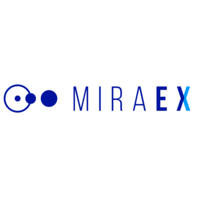
Another Swiss startup, Miraex was founded in 2019 as a spinoff from the École polytechnique fédérale de Lausanne (EPFL). Like LIGENTEC, Miraex is based out of Vaud. The startup develops and manufactures photonic and quantum solutions for next-generation sensing, networking and computing while offering a proprietary full-stack platform for sensing and quantum applications using photons instead of electrons and a quantum platform for single-photon levels and quantum preserving devices.
Founded by Nicolas Abelé, Karel Dumon and Clément Javerzac-Galy, Miraex obtained a grant of CHF40,000 in 2019.
Visit company’s profile page.
7. M Squared (UK)

M Squared, founded in 2006 during the early years of the commercialization of QC by Graeme Malcolm OBE, is a Scottish company based in Glasgow. With offices also in Europe and the US, the company manufactures integrated quantum systems like quantum accelerometers, sensors and optical lattice clocks. With a team of thirty scientists, engineers and project managers who all bring their own specialized skills to the company, M Squared is an industry leader that is sure to make its mark in the photonics market for years to come.
Quantum technology for the real world
— M Squared
In November of last year, the company received the huge sum of £32.5 million (roughly $43.5M) (U.S.) in new financing to develop its innovations in photonics and quantum technologies, adding to the £6.4 million it has obtained across the last three rounds.
Visit company’s profile page.
8. Nordic Quantum Computing Group (Norway)

If you think M Squared is an old company, Nordic Quantum Computing Group (NQCG) makes it look like Peter Pan. Founded in 2000 (as one of the oldest QC companies in the world, duly noted here) by Axel Mustad, the Oslo-based company is working on a platform that utilizes agnostic quantum software grounded on developments in superconducting qubits and photonic QC with the goal of reaching quantum advantage in simulation, optimization and AI.
Visit company’s profile page.
9. Nu Quantum (UK)
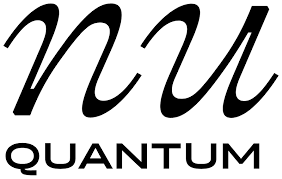
A spinout of the Cavendish Laboratory at the University of Cambridge founded in 2018, Nu Quantum’s scope is in the development of ‘end-to-end quantum cryptography systems, securing communications between cities through urban and satellite free-space optical links’.
Illuminating the quantum revolution
— Nu Quantum
With revolutionary, as well as proprietary, single-photon components that enable the next generation of photonic quantum technologies to make an impact on ordinary people’s lives, Nu Quantum’s founding team of Carmen Palacios-Berraquero, Matthew Applegate, Mete Atatüre, and Yuri Andersson has all the competencies required — through a varied skill set — to navigate the growing industry of quantum tech.
Visit company’s profile page.
10. NTT Technologies (Japan)

The biggest player on the list, NTT Technologies, is a Japanese multinational telecommunications company and a wholly-owned subsidiary of Nippon Telegraph & Telephone (NTT) Corp. To readers of TQD, however, the company’s Nanophotonics Center (NPC), founded in 2012, is made up of several groups involved in nanophotonics research located in NTT’s Basic Research Laboratories and Device Integration Laboratories. These include the Nanodevices, Nanomechanics, Quantum Optical Physics, Photonic Nano-Structure, and Quantum Optical State Control Research Groups.
There’s little doubt with the resources at hand, NTT Technologies will be there or thereabout when the big breakthroughs nanophotonics information processing and NTT’s ultimate goal of manufacturing densely-integrated photonic processing chips.
Visit company’s profile page.
11. ORCA Computing (UK)

ORCA Computing is on the road to developing QC using photonic technology that is both scalable and flexible for the modern era.
Changing the world one photon at a time
— ORCA Computing
Founded in 2019 by Ian Walmsley, Richard Murray and Cristina Escoda, ORCA’s contribution to the industry is the first QC platform based on the ‘optical fibre’.
Although optical fibres have faced several technical challenges in regard to their efficacy to the quantum tech industry to date, they are excellent carriers of quantum information.
And ORCA’s solution to this? A ‘novel proprietary quantum memory technology’ employing a photon-qubit ‘repeat-until-successful’ operation that may just be the magic pill.
Visit company’s profile page.
12. Photonic Inc (Canada)

The intention is simple: creating left-field quantum technologies in silicon photonic spins. Canada’s Photonic Inc. was founded in Vancouver, Canada, in 2016.
We’re convinced that silicon — the very backbone of modern telecommunications and computation — is the missing component needed to finally realize the goal of a global quantum network
— Photonic Inc
With roots firmly placed in the Silicon Quantum Technology Lab at Simon Fraser University, the startup’s proprietary technology in photon spin interfaces in silicon, silicon integrated photonics, and quantum optics. Photonic is manufacturing two-centimetre square silicon chips capable of holding million-plus qubits.
And yeah, for all you physicists out there, ‘you read that correctly’.
Founder and chief quantum officer (CQO — love the epithet) at Photonic is Stephanie Simmons. A Tier 2 Canada Research Chair in Quantum Nanoelectronics, a Canadian Institute for Advanced Research Fellow in Quantum Information Science not to mention an assistant professor at the Department of Physics at Simon Fraser University (SFU), Simmons is head of the Silicon Quantum Technology research group.
Visit company’s profile page.
13.PsiQuantum (US)
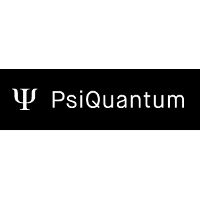
Founded in 2016 by Jeremy O’Brien, Pete Shadbolt, Mark Thompson, and Terry Rudolph, PsiQuantum is based in Palo Alto, California. The startup’s photonics-based, fault tolerance approach to building a universal quantum computer in a CMOS silicon fab is fully in gear. Still, in stealth mode for all sense and purposes, the startup believes wholeheartedly silicon photonic qubits are the best way forward to solve real-world problems using quantum computers.
What is more extraordinary about PsiQuantum, however, is the amount of money the company has raised since the summer of 2016: $508.5 million, the last funding coming in the spring of 2020 in a Series C round valued at $215 million, which was led by Atomico. With that kind of money at its disposal, PsiQuantum we’re sure to hear a lot more from them.
Visit company’s profile page.
14. Quandela (France)

Quandela was founded in 2017 by Valérian Giesz, Pascale Senellart and Niccolo Somaschi and is a spinoff from the Centre for Nanoscience and Nanotechnology (C2N, CNRS-Université Paris Saclay). With headquarters close to Paris, France, Quandela is developing high-performance, compact devices for quantum optics applications that it hopes to one day commercialize and one of the first companies globally to market photonic qubit emitters in the form of single-photon sources for the development of optical quantum computers. The startup’s technology is made up of semiconductor-based photonic qubit generators designed to scale-up optical quantum computing protocols with a large number of photons.
A compact digital NISQ platform within reach
— Quandela
In July of 2020, Quandela closed a funding round — its first — bringing the total raised close to €1.5 million, which included previous grants the company received.
Visit company’s profile page.
15.Quantropi (Canada)

A quantum communications startup founded in 2018 that provides the world’s first quantum key distribution over the Internet, Quantropi is based in Ottawa, Canada.
Quantropi’s patented QEEP™ technologies efficiently distribute lightweight yet exceptionally fast and powerful ultra-high-entropy quantum keys over contemporary communications infrastructure, even as it continues to evolve, in order to consistently deliver greater, more reliable security and confidence than is or ever will be available, anywhere’.
As well as this QEEP™, Quantropi’s proprietary cloud-based non-photonic QKD solution QiSpace™ and the quantum-safe file encryption application for end-users CipherSpace™ products are out to prove quantum mechanics can protect data.
The startup’s founders are James Nguyen and Randy Kuang.
Visit company’s profile page.
16.QuiX (Netherlands)

The next featured is QuiX. Founded in 2019 by CEO Hans van den Vlekkert and scientists from the University of Twente, the startup has its headquarters in Enschede, the Netherlands. Currently, in the process of developing a photonic quantum processor based upon silicon nitride waveguides, the team at QuiX aspire to building a quantum computer that can operate at room temperatures. This will, if successful, solve the problem of using expensive dilution refrigerators, making the technology more commercially viable.
Visit company’s profile page.
17.Sparrow Quantum
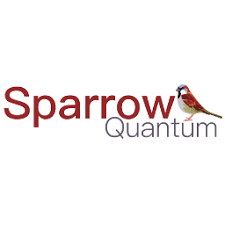
Founded in 2015 in Copenhagen, Denmark, Sparrow Quantum develops photonic quantum technology components drawn from research and patents that emerged from the Niels Bohr Institute Quantum Photonics Lab. Founded by Peter Lodahl, who also happens to be a professor of physics and leader of the Quantum Photonics Group at the Niels Bohr Institute, the ‘SPARROW single-photon source is based on self-assembled InAs quantum dots coupled to a slow-light photonic-crystal waveguide made using a unique processing technology’.
In regard to financials, the startup raised an undisclosed amount during a Venture round in 2016.
Visit company’s profile page.
18. Vexlum (Finland)

Vexlum was founded in 2017, in Tampere, Finland. A laser startup that produces high-power narrow-linewidth vertical external-cavity surface-emitting lasers (VECSELs) for quantum tech applications, it is a spinoff from Tampere University of Technology Optoelectronics Research Centre (ORC).
CEO Jussi-Pekka Penttinen and Mircea Guina, the CTO and chairman, are Vexlum’s founders.
Visit company’s profile page.
19.Xanadu (Canada)

We finish the list with what is one of the most high-profile photonic companies in the quantum tech industry, Xanadu. Founded in 2016 by CEO Christian Weedbrook, Xanadu’s mission “is to build quantum computers that are useful and available to people everywhere”.
The Photonic Advantage: Fastest path to scalable, robust, and practical quantum computers
— Xanadu
Taking a full-stack approach to manufacturing hardware and software, as well as research with a selection of strategic partners, Xanadu’s Quantum Cloud (XQC) service, Strawberry Fields application library and PennyLane — an open-source project for quantum ML — mean that the Canadian company is at the cutting edge of developments in QIS.
The release of the world’s first publicly available photonic quantum cloud platform last September, where developers can access gate-based photonic quantum processors, in 8, 12, and in the future 24-qubit machines, shouldn’t do any harm to the company’s credibility, either — so, too, the apparent obsession Xanadu has for The Beatles.
Since 2016, the company has managed to raise over $30 million, with a mixture of non-equity assistance, grants, Seed and Series A rounds.
If you want to learn more about QC Companies in general, we’ve compiled the most comprehensive list of the top quantum computing companies available!
Visit company’s profile page.
TQI Summary
We came to the end of our journey through exciting photonic quantum computing. To sum it up, Photonics Companies are gaining much more attention in the quantum computing market, and are growing at enormous rates, so it is a privilege to be part of it.
If you want to find out what’s new in the Industry, check out our latest quantum news.
Frequently Asked Questions
How big is the global photonics market expected to get?
The global photonics market was projected to grow at a CAGR of 5.85% to reach $829.775 billion by 2025, up from $589.950 billion in 2019. This growth is also driving expansion in the quantum technology sector, where photonics plays an increasingly central role.
Why is photonics considered a promising approach for building quantum computers?
Photonic quantum computers use photons — particles of light — to carry and process quantum information, offering advantages like room-temperature operation and compatibility with existing fiber-optic infrastructure. Companies like ORCA Computing, Xanadu, and QuiX are pursuing this approach as a potentially more scalable and commercially viable alternative to systems requiring expensive cooling infrastructure.
Which photonics quantum computing companies have raised the most funding?
PsiQuantum leads the list, having raised over $508.5 million since 2016, including a $215 million Series C round. M Squared also secured significant funding with £32.5 million in financing, while Cambridge Quantum Computing achieved a $450 million post-money valuation after a $45 million financing round.
Are there photonics quantum companies outside the US and UK?
Yes — the list spans companies from Canada, Japan, Switzerland, France, Netherlands, Finland, Norway, Spain, and Denmark. Canada is particularly well represented with Xanadu, Photonic Inc., and Quantropi all making the list.
What role do university spin-offs play in the photonics quantum industry?
Many leading photonics companies originated as university spinoffs, including ORCA Computing and Nu Quantum from Cambridge, AegiQ from the University of Sheffield, Quandela from CNRS-Université Paris Saclay, and Sparrow Quantum from the Niels Bohr Institute. This pattern reflects how fundamental photonics research in academia is translating directly into commercial quantum technology ventures.
Can photonic quantum computers operate at room temperature?
Several photonic quantum computing companies are working toward room-temperature operation, which would eliminate the need for expensive dilution refrigerators required by superconducting systems. QuiX specifically highlights room-temperature operation as a key commercial goal, while ORCA Computing and Xanadu also pursue photonic architectures that avoid extreme cooling requirements.
















